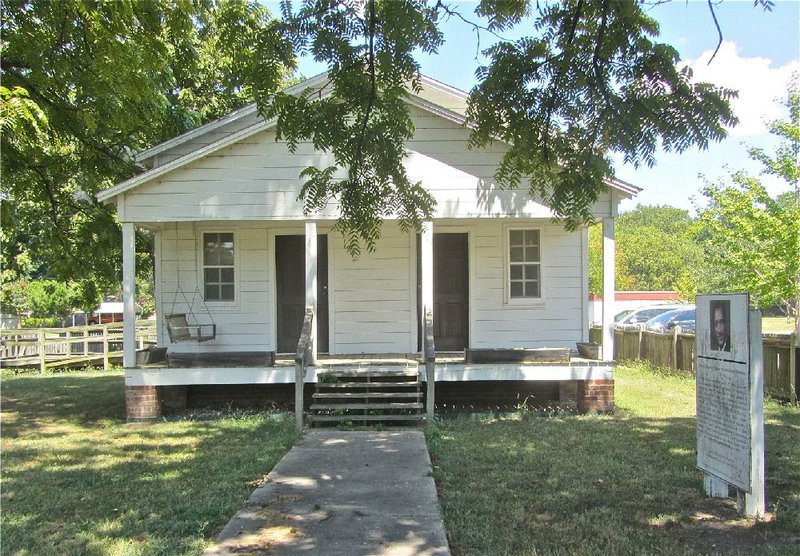ARKANSAS CITY -- A visit to the replica bungalow that evokes the boyhood home of pioneering black magazine mogul John H. Johnson's is totally a do-it-yourself tour.
In Arkansas City, the state's least populous county seat, with about 350 residents, the key to the front door of the clapboard structure can be picked up at the nearby Desha County Courthouse. The museum is at the corner of President Street and Morning Star Avenue, across the street from the courthouse.
Visitors return the key later on the honor system after making their way around the four furnished rooms. A brochure on a living-room table provides a brief biography.
The John H. Johnson Boyhood Home and Museum, built a dozen years ago after the original house collapsed when being moved from its site along Arkansas 4, serves as a museum honoring Johnson. He was born in Arkansas City in 1918, a third-generation descendant of slaves. He was 8 when his father died in a sawmill accident.
There was no high school for black teenagers in Arkansas City, 115 miles southeast of Little Rock. So he was sent to Chicago in 1933 to continue his education. At age 24 after some college, he used his mother's furniture as $500 collateral for a loan to start Negro Digest magazine, followed by Ebony and Jet.
Eventually listed by Forbes magazine as one of the 400 richest Americans, he actively fought racial discrimination. He received the Presidential Medal of Freedom, America's highest civilian honor, in 1996. With more than 30 honorary college degrees, he died in 2005.
The house, furnished more comfortably than was likely the case in Johnson's boyhood abode, displays photographs and memorabilia related to his family and transcendent career. First-day U.S. Postal Service envelopes from 2012 with a commemorative stamp picturing Johnson are arrayed on a living-room table.
The presence of white and black clerical staff in the nearby Desha County Courthouse, which towers over the town, suggests the sweeping racial and cultural changes since his childhood.
In Johnson's 1989 autobiography, Succeeding Against the Odds, he recalled: "The funniest -- and saddest -- incidents of this period grew out of attempts to control the laughing of black people. When the first picture show came to town, the first floor was reserved for whites, and blacks were assigned to the balcony. Blacks were also told, in so many words, that we could only laugh when white people laughed.
"If, as often happened, a scene set off an uproar in the black section, someone below would say, 'You n**, cut out that laughing.' The laughing would die down, with a few impudent snickers, until a scene struck the fancy of the white audience and there was a general license for blacks to laugh along with the whites.
"But it never really worked. For blacks, as a form of defiance or film criticism, always laughed too long and too loud, bringing forth the command, 'You n**, cut out that laughing!' I'm glad there were no Richard Pryor movies in that era, for some blacks would have literally laughed themselves to death."
Johnson's book also describes the devastating Mississippi River flood of 1927, which left the town underwater for weeks. A busy river port earlier in the 20th century, it lost its waterfront when the channel shifted and now has a small fraction of its heyday population. A plaque on the old levee recounts the flood.
While Johnson qualifies as the community's most illustrious citizen, an Arkansas chief executive also had local ties. Blessed with the name Xenophon Overton Pindall, he served as acting governor from 1907 to 1909.
Pindall's Arkansas City law offices are under restoration, with a sign indicating completion intended by the end of this year. That would provide another reason to visit a town that once had 14 saloons, a couple of bordellos and an opera house -- and now resonates only with the echoes of history.
The John H. Johnson Boyhood Home and Museum in Arkansas City is open from 9 a.m.-3:30 p.m. Monday-Friday. Admission is free. Visitors need to pick up the key at the nearby Desha County Courthouse's reception desk. For information, call (870) 877-2426.
Weekend on 08/20/2015
